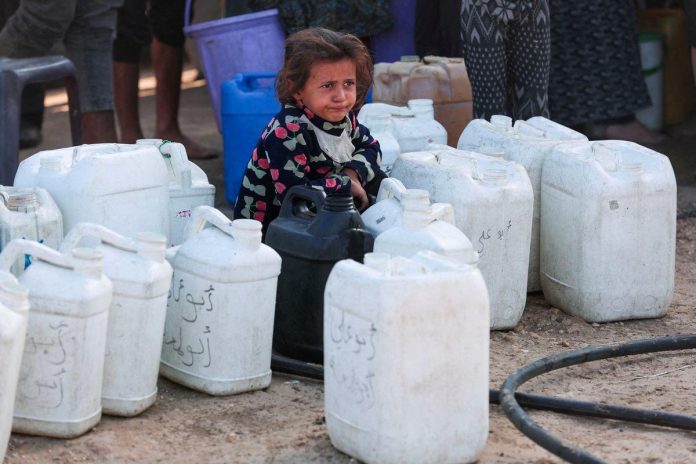GENEVA: The United Nations reported on Friday that aid convoys were struggling to reach famine-hit areas of north Gaza due to war-damaged roads and the continued closure of key routes.
Around 560 metric tons of food had entered the Gaza Strip daily on average since the US-brokered ceasefire halted two years of devastating war.
UN humanitarian affairs chief Tom Fletcher stated this week that thousands of aid vehicles would need to enter weekly to tackle widespread malnutrition, homelessness, and infrastructure collapse.
A UN spokesperson confirmed that Fletcher travelled to Gaza on Friday to meet with humanitarian workers and UN agencies.
Fletcher posted on X that he was supporting teams as they deliver a 60 day plan to massively scale up lifesaving work.
World Food Programme spokesperson Abeer Etefa told a Geneva press briefing that aid levels remained below what was needed despite the ceasefire opening a narrow window of opportunity.
The WFP confirmed it had not begun distributions in Gaza City due to the continued closure of two northern border crossings with Israel at Zikim and Erez.
Etefa described access to Gaza City and northern Gaza as extremely challenging, with convoys hampered by broken or blocked roads.
She emphasised the critical importance of opening northern routes where famine has taken hold to turn the tide on the crisis.
Global medical charity Medecins Sans Frontieres reported that many relief agencies had not fully returned to the north where hospitals are barely functioning.
MSF emergency coordinator Jacob Granger described a Gaza City woman with a shrapnel wound who could not access medical care for five days earlier this month.
When the woman finally saw an MSF nurse, her wound was found to be infected with worms and maggots.
Though small amounts of nutrition products have reached the north, relief convoys remain unable to move significant food quantities there.
The UN’s humanitarian coordination agency reported that around 950 trucks entered south and central Gaza on Thursday via Kerem Shalom and Kissufim crossings with Israel.
This followed approximately 715 trucks that rolled into Gaza on Wednesday, including 16 bearing fuel and gas. – Reuters








